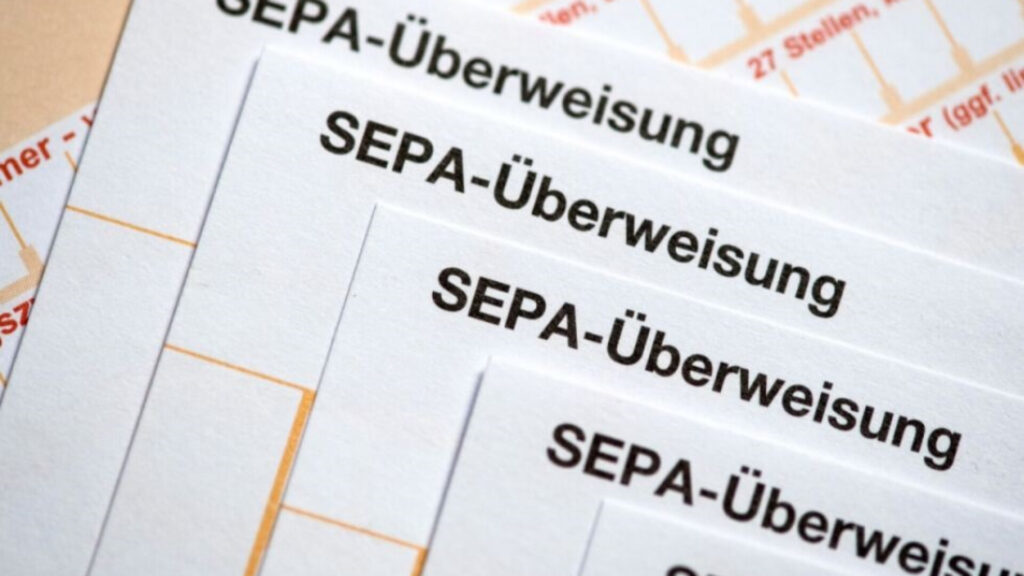
On October 9, the rules for bank transfers will change. Instant transfers will become the standard and must be offered by banks throughout the euro area. In addition, new security measures will take effect: before completing a transfer, banks will be required to check whether the IBAN and the recipient’s name match. The goal is to better combat fraud. Consumer advocates view the changes largely positively.
“Basically, this is a good step, because financial fraud in the banking sector has increased sharply,” said Christian Prantner, consumer protection expert at the Chamber of Labor (AK), in an interview with APA. Until now, it was easy for fraudsters to redirect payments since IBAN and recipient name did not have to match—the IBAN alone was the customer identifier. Fraudsters could therefore provide false account details with the name of a legitimate recipient, and the transfer would go through without issue.
Recovering a mistaken or fraudulent transfer, however, is usually not possible and can be costly for customers, Prantner noted. If a transfer goes wrong, customers can request an investigation, but banks charge between €30 and €50 for this.
Traffic-Light System For IBAN Check
To counter the rise in fraud cases, mandatory IBAN-name matching will apply from October 9. A “traffic-light system” will check whether IBAN and name match before customers confirm the transfer. If the two parameters match, the bank gives a green light. Minor deviations (yellow)—for example, a typo in the recipient’s name—will prompt the system to suggest the correct name. Major deviations (red) will flag the transaction. The transfer can still be approved, but at the customer’s own risk, and the bank assumes no liability for errors.
In addition to the IBAN check, all banks will be required to offer instant transfers for eurozone transactions starting October 9. The classic SEPA transfer will effectively be replaced. Extra fees for instant payments are prohibited. The changes are based on the EU’s Instant Payments Regulation.
More Responsibility For Customers
Prantner said the changes are mostly positive, as they help prevent mistaken transfers through name-IBAN matching. “It really adds new security.” But he also pointed out that this gives customers more responsibility to ensure transactions are correct.
If a transfer receives a red flag, Prantner advised customers to “take a big step back” and carefully recheck the data entered. Banks are only liable for incorrect transfers if the check mistakenly confirmed that IBAN and name matched. He recommended that customers copy the recipient name directly from the invoice when shopping online. If uncertain, they should always contact the merchant before approving a payment.
Customers can also set transfer limits for each account, which Prantner called a useful measure to prevent errors. In general, he advised customers to use the transition as an opportunity to review their account settings.
Instant Transfers Could Accelerate Fraud
The changes also carry risks. “Instant transfers also accelerate fraud,” Prantner warned. In cases of fraud, it becomes much harder to trace payments and recover the money.
The increased speed of transactions is also not always positive for customers. “I see many customers overwhelmed by the increasing digitalization,” said Prantner. Banks face heavy digitalization pressure, while more and more branches are closing. Customers often complain about lack of support, as it is increasingly difficult to reach a real advisor even by phone.
The Chamber of Labor also intends to “keep a very close eye” on whether the new IBAN-matching rules will lead to higher banking fees in the medium term. The AK Bank Monitor regularly compares fees across Austrian banks.
Further Regulation On Fraud Protection
According to Prantner, much more needs to be done to combat fraud—especially phishing. A new EU regulation, the Payment Services Regulation, is in preparation. This will mainly address banks’ liability provisions, which often disadvantage customers and need improvement. The new regulation would place greater responsibility on banks, said Prantner. However, he noted that it is unclear when the new law will come, as the trilogue negotiations between the Commission, Council, and Parliament have not yet begun.

